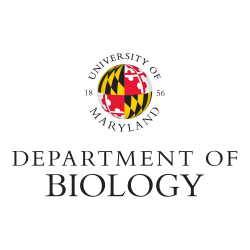College Receives Fourth NIH Training Grant in the Life Sciences
New grant in virology and renewal of host-pathogen interactions grant add to programs in comparative and evolutionary biology of hearing, and cell and molecular biology.
The National Institutes of Health (NIH) recently awarded the University of Maryland’s College of Computer, Mathematical, and Natural Sciences a new Ruth L. Kirschstein National Research Service Award Institutional Research Training Grant (T32) in virology and renewed its T32 training program in host-pathogen interactions (HPI). The grants add to the college’s other long-running T32 grants focused on the comparative and evolutionary biology of hearing (CEBH) and cell and molecular biology (CMB).
T32 grants provide competitive stipends, health insurance, travel funds and other forms of support for trainees, who are typically graduate students or postdoctoral fellows funded for one year, with the possibility of extensions.
“This gives us a mechanism other than teaching assistantships for supporting students’ research and allows us to place a lot of emphasis on supporting Ph.D. research at a time when it’s really critical that the students focus on their projects,” said Catherine Carr, a UMD professor of biology and co-principal investigator of the CEBH T32 grant.
The new virology training program, led by UMD Cell Biology & Molecular Genetics Professor Anne Simon, will support three graduate students and two postdoctoral positions. Virology chooses its trainees from the Biological Sciences Graduate Program (BISI) and the Department of Veterinary Medicine.
The HPI training program, which the NIH renewed for another five years, funds four graduate student trainees from the biological sciences, bioengineering, chemical engineering or biochemistry graduate programs. Kevin McIver and David Mosser, professors in UMD’s Department of Cell Biology and Molecular Genetics, lead the HPI grant. HPI trainees have published research findings in high-impact journals, including Science, the Proceedings of the National Academy of Sciences and PLOS Pathogens.
“The T32 was extremely beneficial, allowing me to interact with more biologists and immunologists,” said James Andorko, a Ph.D. student in bioengineering at UMD and former HPI trainee. “As a student with a biomaterials background, by interacting with experts in another field, I was able to diversify my research to include some of these fields and have since decided to continue in this direction for my future postdoctoral research.”
The seven-year-old CMB training program, which is directed by UMD Department of Entomology Professor Leslie Pick, funded five graduate students in 2016 and expects to fund six in 2017. CMB accepts second- or third-year graduate students in the molecular and cellular biology concentration area within the Biological Sciences Graduate Program.
Sergey Sulima (Ph.D. ’13, molecular and cellular biology), who was supported by the CMB training grant from 2010-2012, published a first-author paper in the Proceedings of the National Academy of Sciences on a role ribosomal mutations play in cancer. Currently a postdoctoral scientist at the VIB Center for the Biology of Disease in Belgium, Sulima also co-authored papers in the journals Nature, Blood and Nucleic Acids Research on research he conducted in the laboratory of Jonathan Dinman, professor and chair of the UMD Department of Cell Biology and Molecular Genetics.
The CEBH training program, which the NIH has supported for 22 years, funds four graduate students and two postdocs. Trainees can enroll in any department home to a core faculty member in the Center for Comparative and Evolutionary Biology of Hearing or the interdisciplinary Program in Neuroscience and Cognitive Science.
Many former trainees have gone on to successful careers in academia, industry and health professions. For example, UMD alumna Mounya Elhilali (M.S. ’03, Ph.D. ’04, electrical engineering), a CEBH trainee from 2001-2004, is now a Charles Renn Faculty Scholar and associate professor of electrical and computer engineering at Johns Hopkins.
The T32 grants also support programs, collaborations, and internships that benefit students and postdocs not funded by the grant. For instance, the HPI T32 grant helped foster a collaboration with Morgan State University aimed at developing a summer internship program for underrepresented minorities to conduct research in the laboratories of HPI faculty members.
The NIH provides T32 grants to train “a diverse and highly trained workforce” that will be “available to meet the needs of the Nation’s biomedical, behavioral, and clinical research agenda. Research training programs will incorporate didactic, research, and career development elements to prepare individuals for careers that will have a significant impact on the health-related research needs of the Nation.”







